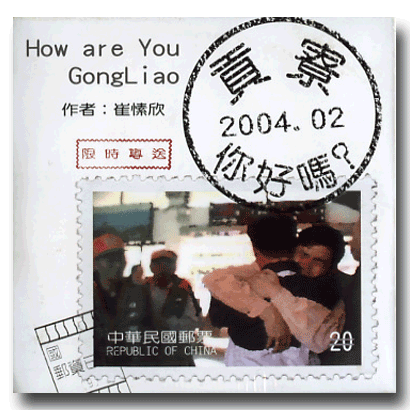Gong Liao ni hao ma 貢寮你好嗎. Directed by Tsui Shu-hsin 崔愫欣 . 2004. (Documentary, 89 mins.)
 Gongliao (貢寮), a fishing village located in the northeast Taiwan, was chosen by the government in the early 1980s to be the location for the Fourth Nuclear Power Plant (also known as Longmen Nuclear Power Plant). As the decision was not welcomed by Gongliao’s local residents, an anti-nuclear social movement has emerged to protest it—one which lasted for more than two decades. From 1998 to 2002, Shu-hsin Tsui (崔愫欣) video-taped local anti-nuclear events there while she was a masters-degree student working on participatory observation in Gongliao, including residents’ meetings and organized protests. She later edited the clips into the documentary Gongliao, How Are You.
Gongliao (貢寮), a fishing village located in the northeast Taiwan, was chosen by the government in the early 1980s to be the location for the Fourth Nuclear Power Plant (also known as Longmen Nuclear Power Plant). As the decision was not welcomed by Gongliao’s local residents, an anti-nuclear social movement has emerged to protest it—one which lasted for more than two decades. From 1998 to 2002, Shu-hsin Tsui (崔愫欣) video-taped local anti-nuclear events there while she was a masters-degree student working on participatory observation in Gongliao, including residents’ meetings and organized protests. She later edited the clips into the documentary Gongliao, How Are You.
Abolishing the Fourth Nuclear Power Plant has been a one of the central issues for the environmental movement in Taiwan. The documentary will thus be helpful for courses or course units on environmentalism in Taiwan. The Taiwanese government planned to build the Fourth Nuclear Power Plant in this village in the early 1980s, but temporarily stopped the plan because of the Chernobyl disaster in 1986. In 1994, however, the Taiwanese government reapproved its construction budget, but only recently completed the power plant.
For the past three decades, different generations of Taiwanese environmentalists have been trying to stop the government from resuming construction, and later operating the nuclear power plant. The plant has been being one of the central issues in Presidential elections in Taiwan as well as governor elections at the different levels of administrative jurisdiction of Gongliao. This documentary focuses on Gongliao residents’ everyday participations in the social movements to stop the construction of the plant. It successfully re-interprets the national controversy by narrating from local residents’ viewpoints.
The film’s voice-over is spoken by the director Tsui. In the opening of the film, Tsui started with the phrase “How are you?” The question was addressed to two subjects. The first is the village of Gongliao. The other is Shun-yuan Lin (林順源), a man who was accused of intentional homicide and sentenced to life imprisonment. During the turbulent anti-nuclear demonstration in Gongliao on 3 October 1991, Lin accidently hit a policeman with a car and caused the policeman’s death. Lin was then only twenty-six years old, and had just decided to leave his voluntary military service and had planned to board a fishing vessel to start a new career, which was never realized. He became involved in the demonstration because he visited a friend in Gongliao while awaiting his fisherman’s license. Many residents felt apologetic and guilty because an outsider had appeared to become collateral damage in their fight against the authorities. While documenting the local residents’ feelings towards Lin’s sentence, Tsui captured the spirits of the local residents due to their loyal dedication to the movement. Just as Lin was an unfortunate victim of this dispute, the Gongliao residents were also unfortunate victims of the decision to place the nuclear plant in Gongliao.
The second half of Gongliao, How Are You further illustrates that problems surrounding nuclear energy involved in the decision to build the Fourth Nuclear Power Plant was not merely an issue for domestic politics, but also had international implications. The Fourth Nuclear Power Plant had been designed by companies from the United States and manufactured by Japanese companies, and so the plant itself was the product of the triangular negotiations among the Taiwanese government and companies from these two foreign nations.
The documentary was well received in 2004, but it once again attracted the attention of many Taiwanese academics and social movement participants after the Fukushima nuclear disaster in 2011. It is highlighted as document about local residents’ advocacy for social justice.
The director has uploaded the documentary to YouTube. It can be viewed here.
Ching Hung (洪靖), Ph.D. student, University of Twente, Netherlands.
![[Teach311 + COVID-19] Collective](https://blogs.ntu.edu.sg/teach311/files/2020/04/Banner.jpg)